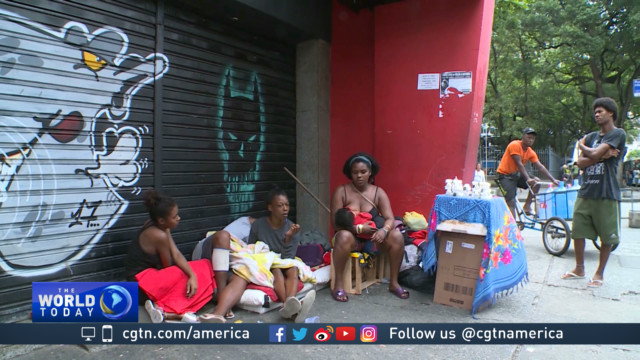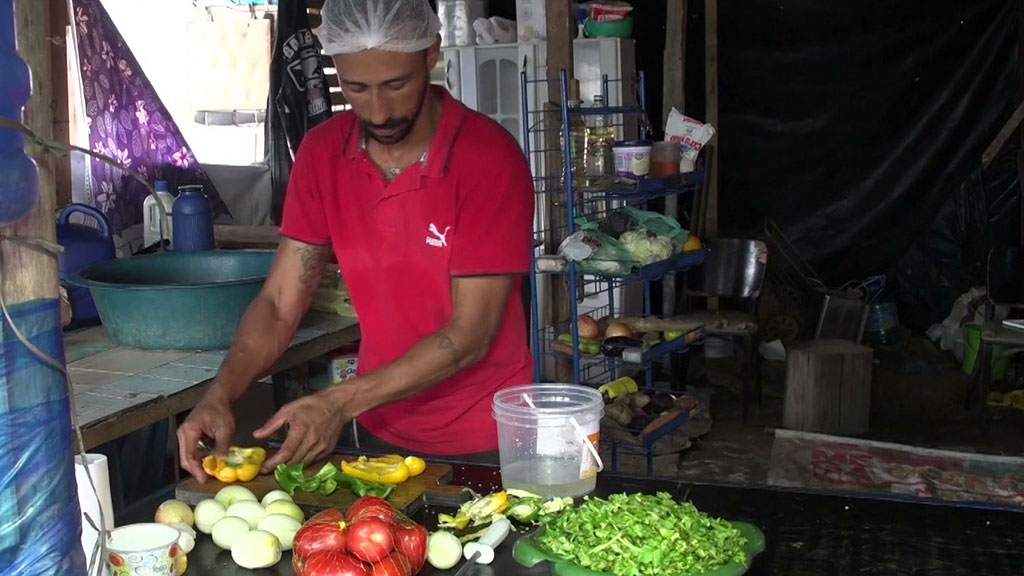In 2014, the United Nations World Food Program dropped Brazil from its world hunger map. But now, Latin America’s most populous country is in danger of being relisted, as millions return to poverty.
CGTN’s Lucrecia Franco reports on a food campaign for those in need.
Follow Lucrecia C. Franco on Twitter @LucreciaFranco
Agatha Lorane, her nine-month-old baby Perola, and cousins have been sleeping on a sidewalk in Copacabana for the last two months. They don’t have enough money to buy food.
“It all started after I was fired from a shopping mall job,” Lorane said. “Now, I’m selling candles for Christmas until I find another job so I can get off of the streets.”
She is not alone.
Despite a recent drop in unemployment, there are still about 13 million unemployed Brazilians, and many more are sliding below the poverty line. After a dramatic decline in poverty under the Workers’ Party, Brazil was removed from the U.N. hunger map in 2014. But there are concerns that it could be reinstated.
So now an NGO has partnered with the U.N. to help collect more than 500 tons of food by the end of December, in an initiative called Christmas Without Hunger.
“We have something that we see each day in the communities we visit,” executive director Rodrigo Afonso said. “What they say is that they don’t want more culture or more education as they would have two three years ago. They want food. That’s what they want now.”
Campaign organizers say they are trying to raise consciousness among Brazilians before the problem gets worse.
People living in the streets is just one of the signs of Brazil’s return to poverty. Economists say the country’s deep recession, high unemployment and cuts in social programs are to blame.
According to a study released in June by Brazil’s prestigious Getulio Vargas Foundation, poverty is on the rise again. Poverty once reached reached 25 percent of the country’s population, but managed to fall before beginning to rise once again.
“It went down to eight percent and in the last two years, it went back to 11.2 percent, so 5.5 million people reentered poverty,” the foundation’s director Marcelo Neri said.
Agatha is one of the 22 million Brazilians living below the poverty line. In the meantime, the government insists on implementing unpopular austerity measures in order, it says, to put the economy back on track.
 CGTN America
CGTN America

